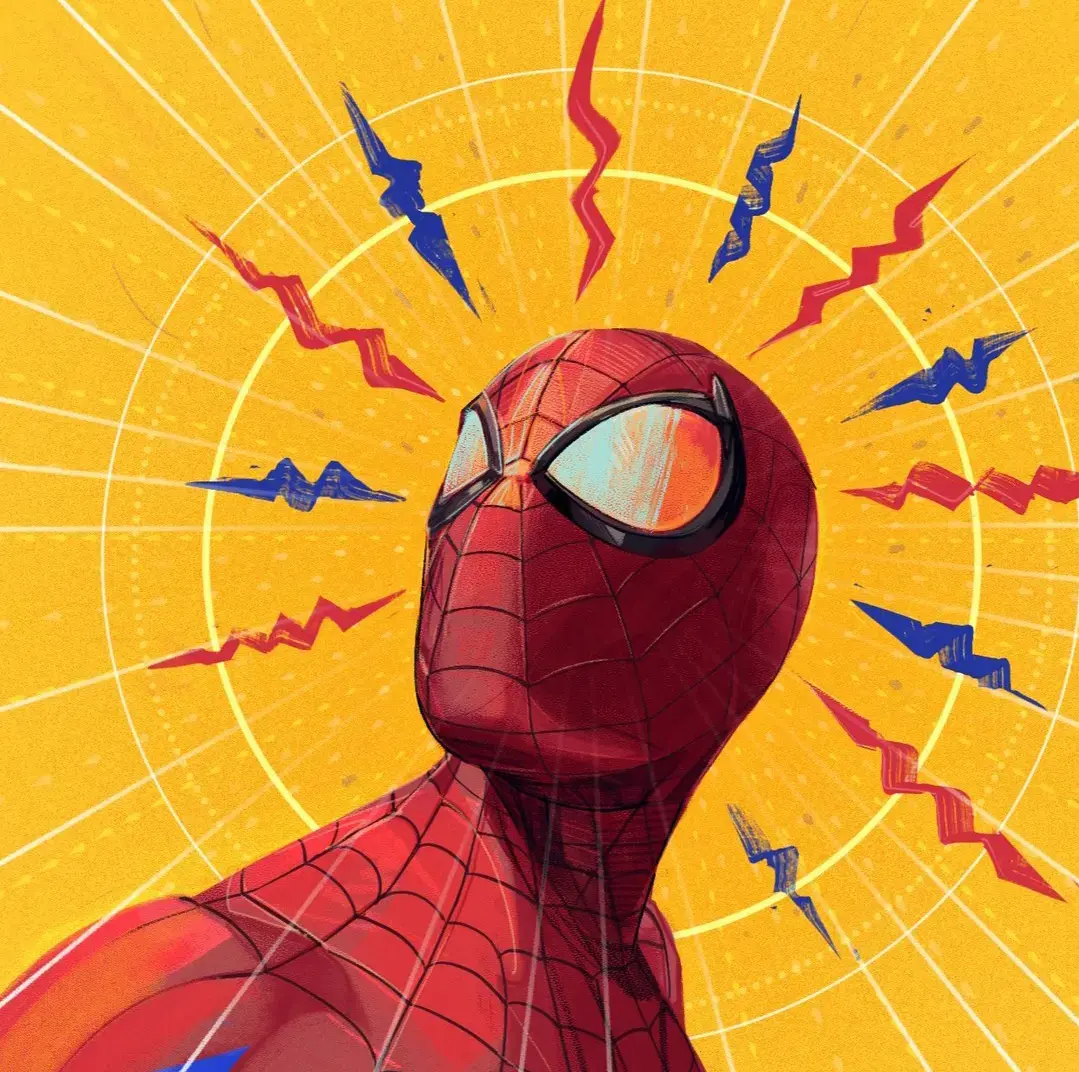
The Internet has become soulless
Gee, I wonder what could’ve contributed to that.
Edit: In case the screenshot doesn’t sync to all instances, the screenshot is OP’s article immediately asking to send notifications to my device for a site I’ve never been to before that moment. If you want to know what killed the internet we used to know, it’s shit like this. As soon as a page asks to send me notifications, I immediately lose trust in that page and have no inclination to spend any more time there.
For taking about big corpos disrespecting the user experience, this is certainly an ironic move.

Hey. I was watching this thread and created an account just to say that you are right! Bombarding a user with popup stuff is one of the things i criticized in my blog. I completely forgot that i turned on this setting when i set it up (whoops). I changed the “notification-question” to only show once after you visited the site for the fifth time.
Thanks for visiting my site though and for pointing this out to me! <3

I changed the “notification-question” to only show once after you visited the site for the fifth time.
Which you do by tracking your users instead of generating a value and leaving users to decide if they want to be notified about new content. Put a button on your page that allows for this, but don’t go out bothering people.

Really interesting article! Most importantly to me, it has spurred some really good conversations.
Personally, I don’t think early web is the answer. Modern web usage has allowed for better accessibility to all ages and types. Content aggregation allows for (but doesn’t guarantee) more views and opinions. There are certainly elements we can get back from the early days, but I think we still need work to find a perfect web

Thanks!
Of course. There are so many features of the modern web that i’d never give up (speed, security ,accessibility, api’s [that one’s ironic nowadays], dev tools, webgl,…).
Like you said, a great solution would be to combine those newer and older elements in order to create a great web for all. I think that the fediverse is already a great step into the right direction.

Absolutely. I guess that’s why many of us are here.

Modern web usage has allowed for better accessibility to all ages and types.
One could argue that this is part of the problem.

Interesting. I agree that there are some that make the internet a worse place, but surely we wouldn’t want to close the internet to all the others that could use it for good?

Welcome to the part of the Internet with a soul.
Seriously if you’re old enough to remember the Internet in terms of users weird passion projects you could do a lot worse than hanging off any part of activitypub.
There’s a lot more people than the old days with technical backgrounds, so there’s a lot more practical stuff.

While I understand the sentiment, I hate this trend that whenever someones talks about how soulless the internet has become, the answer is always Web 1.0.
I don’t want web 1.0. I like having CSS and Javascript around. I use them to build things I couldn’t with HTML alone, and I’ve seen countless incredibly creative websites which fundamentally couldn’t have been built without Javascript. It’s weird to me how the article mentions the creative aspect of the old web, versus the commercial aspect and “sameyness” of the current web, only to then toss out tools that allow for even more creativity and personalization in the current web.
Whenever I finish reading one of these articles it always feels like it’s mostly nostalgia and not much else.

the problem is not the technology but how the tech companies use it to their value and kill everything that felt so special when we used the internet a decade ago (or two)

The article is a bit too nostalgic for my tastes, and hyping 4chan or Web 1.0 surrogates is not going to put the Internet back into users’ hands.
Everybody should rather take a look at what Ari Balkan is doing with the Small Web concept over at his blog. He’s also on Mastodon and generally seems like a great guy.

guy’s really named after a sea and a mountain range
Seems like an interesting project

Interesting!

How neat! Thanks for those links.

The personalized, colorful web pages became streamlined, conforming to modern design standards and sacrificing individuality for uniformity.
There are some pretty big advantages to ‘modern design standards.’ For one, they make the Internet a less hostile place to users with accessibility needs. I don’t have problems viewing clashing colors, flying gifs, jumbled pages with no sanity, etc, but a hell of a lot of people with various disabilities sure do. I don’t want to even think about how screen readers try to deal with pages like that. Web1.0 offered absolutely nothing for those users who needed accessibility.

This kind of reminds me of the car nostalgia and the complaint that nowadays they all look samey. Turns out it’s not because they’re built by big soulless corporations (they are though), but because that vaguely roundish running shoe look is what you get when you optimize for efficiency and you apply safety regulations.

I feel like both things are true with this one. I mean, at least they could be more creative with the paint, surely? Or detailing? Maybe some fun etchings? Fun car interior designs?
It’s a mass-market product so I do get why they don’t, but man, there are way too many boring gray and white cars that just match the pavement.

Blog writer with vague complaint and no solutions stumbles across popular headline - more at 11.
The issue at play is the big corporate companies, that pretended to be public services, had their venture capital dry up and felt pressure to become profitable. The subsequent monetization and censorship within those systems had significant impact on the quality of content, but outside of those systems the internet has continued to flourish. I suggest the author get off of Reddit/Meta/TwitX, use a better search engine than Google, and start checking out the Fediverse.
Remember kids, the big social media companies will always want you to think that they are the entirety of the internet. But the internet is not a network of machines. It’s a network of human minds, and no organization will ever be able to contain the raw chaos that is the collective force of human imagination.

The issue at play is the big corporate companies
I’m guessing you weren’t around before these guys ate up the internet?
The issue at play IS the big corporate companies. Period.

They didn’t eat it up, although they certainly want you to think they did, and it’s clear they convinced you.
I’ve been on the internet since the BBS days. Centralized services rise and fall, and people said the internet was dead when AOL became the big portal, and then they said it with Yahoo, and Digg, and Facebook, and now Reddit and Twitter. It’s kinda like people who are always saying the world is gonna end - it never ends - it just changes.
I’d actually argue that we’re at a point of an internet renaissance spurred by the combined failures of Reddit, Twitter, and Meta to maintain contributor trust. They can’t control the flow of human imagination that pulses through the internet, they can only channel it. If they try to dam it, well, it’s just gonna overflow into fuckSpezicles all over /r/place and carry the cream to the Fediverse and beyond.
I’m not saying that big corporations aren’t a problem, I’m saying they don’t have to be our problem now that we’re here, and anyone who says the internet is dead isn’t looking in the right places.

It’s always interesting when someone is like “I wish I could go back to using smaller sites/forums or try some more open/ethical platforms, but I can’t because all of my family are on Facebook.”
Remember just 20 years ago when most of your family wasn’t anywhere on the internet and that was just fine? I recognize that I’m saying this as a semi-isolated weirdo on some relatively obscure corner of the Internet, but it’s okay to not be in constant passive contact with everyone you’ve ever met. Yeah it’s more work to keep in touch with the folks you actually care about if you can’t do so passively via Facebook, but that’s how it always was. Email exists, texts and phone calls exist, meeting up exists.
If there are people you care about you can still keep in touch with them without using the same social media platform as them. Just like in the 90s you didn’t need to read rec.models.railroad to keep in touch with your model train loving uncle.
I get that these connections (whatever one might say of their quality or tangibility if the interaction is just “look at picture, press like button”) are important to people and one of the positives of platforms like Facebook, but if you’re going to bemoan not being able to seek alternatives solely because the entire world isn’t switching with you, it’s important to realize that is a choice and not a requirement.

Lol - my family being on Facebook is one of the reasons I post here instead.
I actually think the dynamic you speak of helps the quality of the Fediverse specifically. I’ve seen it in play with other emerging platforms, where the adventurous sorts leap onto the new software and start creating content, while the more social sorts like to hang on to what they’re familiar with because they value the community… up until the content begins to dry out, because all the adventurous sorts are usually the ones driving the creative soul of a platform.
Then the real migration begins (which I believe we’re at the beginning of with Reddit & Twitter), and you see an influx of the social sorts. This is the point at which you and I chuckle and say “cool, you’ve got a new Fediverse account? I’ve been posting there for awhile - I’ll follow you - can’t wait to see what you’ve got”.
Then you have that sweet spot where both the creative/adventurous sorts live in harmony with the social sorts and that’s what makes a vibrant internet community, until Spez spazzes or Elon buys it out, making the community miserable. That is until, like Leif Erikson seeking a warm land to grow grapes on to make wine to have a fuckin’ raging party, the adventurous sorts once again venture out into the great wide expanse of Open Source to find the next digital kegger.
Such is the circle of life.

There’s Leif Erickson and then there’s Columbus. Columbus is Elon or Spez.

Agreed. As soon as a web service decides to prioritise revenue growth above the user experience, it’s over. This is usually in the form of an IPO, so if you happen to be a fan of a particular service, as soon as they start talking about going public, start looking for a free / open-source alternative.
- Fizz ( @Fizz@lemmy.nz ) 26•2 years ago
The internet sucks and I hate it… until I stopped using the platforms I don’t like and started using the ones that give me hope. I don’t care anymore if it’s not the biggest thing on the internet it’s still more people than I would ever reach irl.

Neocities (mentioned in the article) is a pretty cool throwback site for making your own simple webpages. I used it for a coding exercise to make my own personal version of a Linktree thing.
Bear blog (link) is also simple and neat for simple un-corporate internet-ing.

That blog looks nice!

Many of us have this kind of feeling. That’s why there are: Small web, inidie web, Gemini… Without being extremist with noJS websites (even if it’s not a bad idea), let’s create content outside platforms. I hope a day blogs will come back and RSS reader became back a trend. So we’ll take back control of a (small) part of the Internet.

I like that the article has some positivity (and some cool links) at the end.
Also, I definitely feel like the fediverse is a step toward a less soulless (more soulful?) internet.

If you liked the links, there are also backup of some geocities sites. And yeah, the fediverse gives the user some sort of control back, i like it here.

the internet is magical.

You can do your part by just starting your own website.

Joke’s on you… it never had a soul!

Come to think of it, are there any noteworthy sites besides tumblr that let you customize web pages like those latter two screenshots? Say what you will about the aesthetic, it definitely has personality.

Check out !Oldweb@lemmy.ml.

And I love it
